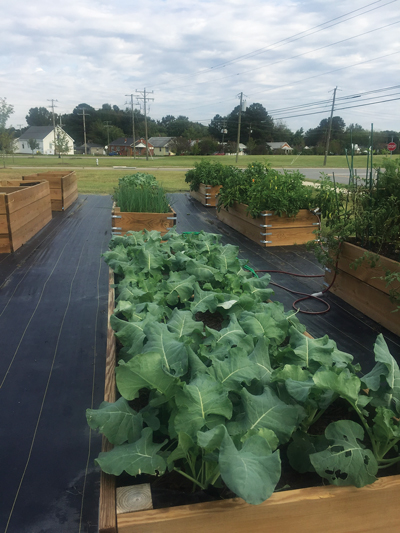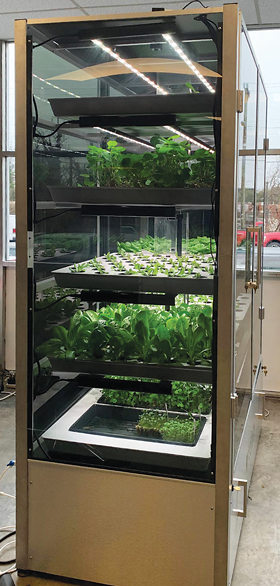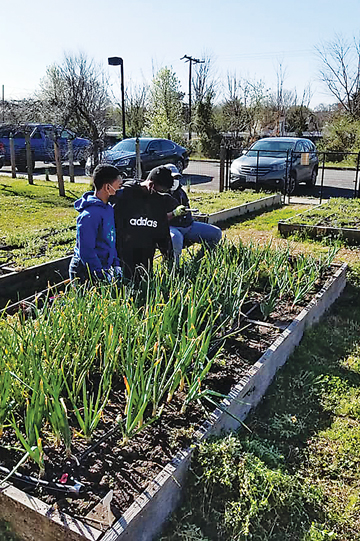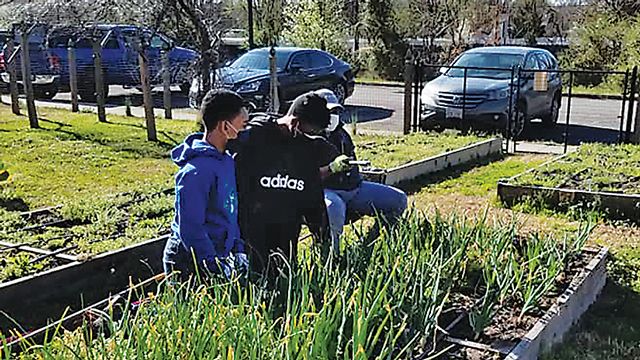
The pandemic has revealed how fragile food access can be. Large-scale agricultural operations, small farms, and family farms have been affected, supply chains have been interrupted, and for a time, grocery store employees were considered frontline workers. Many Virginians had reduced access to food sources and had to rely consistently on food banks.
In some urban communities, families are vulnerable to food insecurity due to limited access to safe, healthy, and nutritious foods. A lack of consistent access to enough food for an active, healthy life arises when food is unsafe, unhealthy, and occasionally or always insufficient. The proportion of households in the U.S. facing food insecurity at least some time during the year before the pandemic was higher than 10 percent, with nearly half of those households experiencing very low food security. Nearly a quarter of a million children in Virginia experience food insecurity, while over half a million do not have access to fresh or healthy food.
Urban agriculture can help address food security by providing fresh fruits and vegetables to urban dwellers.
Exploring Urban Agriculture

Considering that most urban land is expensive, the mere thought of turning an urban plot of land into a farm is out of the question. Micro farming is growing produce – vegetables, microgreens, and small fruits – where space is limited, such as in urban communities. Micro farming is not new, but it’s emerging as a solution to increase food production and help combat food insecurity in urban communities where space for farming has never been prioritized and living space continues to shrink.
Micro farming offers several advantages, including higher returns per unit of land, less use of water, and lowered risk of crop failure. More advanced modular micro farms come with the advantage of a built-in and automated food-growing system that make it possible to provide a controlled environment for growing crops. This system also reduces the risk of the contamination and spread of pests and diseases larger agricultural operations might encounter.
Learn More About Micro Farming
In order to maximize production within a modular micro farm, it is important to study how various environmental factors – temperature, plant nutrients, and carbon dioxide – work together to produce the most food within the shortest time.
Virginia State University (VSU) received a $600,000 grant from the USDA National Institute of Food and Agriculture (NIFA) to study micro farms as a solution to food insecurity in Virginia. The funding will help increase knowledge and skills about micro farming for families in Virginia and beyond.

Micro farming is a part of the sustainable urban agriculture certificate program curriculum at VSU. Currently in its sixth year, the adult education program includes in-class lectures covering a wide range of urban agriculture topics and hands-on experiential learning. The certificate requires eighty hours of apprenticeship at selected urban farms across Virginia. Other organizations that support micro farming in Virginia include Urban Agriculture Work Group in Fairfax, Friends of Urban Agriculture in Arlington, and Babylon Micro-Farms, to name just a few.
I encourage you to learn more about micro farming as a sustainable solution to help end food insecurity in our communities.




